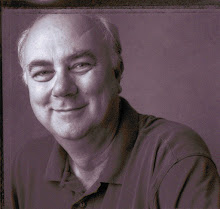Vince Staten
One Stop Shopping for Everything Kingsport
Sunday, August 25, 2019
(Click on image to read Pal's first menu)
1957: Pal's Grand Opening! Self Service!
No Hot Dogs or Sweet Tea on the Menu!
When Fred Barger and his son Fred Jr. – nicknamed
Pal - opened Pal’s on Revere Street in downtown Kingsport on February 13, 1957,
it wasn’t that different from the dozen or so drive-in restaurants all over
town. It opened in the shadow of the Texas Steer, easily Kingsport’s most
famous drive-in in the fifties, which was barely a block away. Not much farther
down Center was the Beacon, another teenager hangout. The Bargers owned another
drive-in, Skoby’s, on Konnarock Drive, near Eastman. (Skoby’s was a drive-in in
the fifties.)
At the time there was even a drive in with a similar
sounding name: Paul’s Drive-In!
But Pal’s had a difference. It was self-service. No
car hop to take your order. You got out of the car and walked up to a window to
place your order.
That concept presaged the McDonald’s that also
featured walk-up service and would eventually arrive on Ft. Henry Drive five
years later.
That first Pal’s was a far cry from the modern business
miracle.
For one thing there was no hot dog on the menu.
The restaurant that is famous for its buildings with
the wiener on top didn’t serve wieners originally. And it didn’t serve sweet tea,
or any tea.
Those would become its signature menu items.
But that is one of the secrets to Pal’s success:
adaptation.
And creativity.
And Sharon.
Pal’s really took off after he married Sharon and
they became a team, in business and in life.
She smoothed his rough edges without trying to tame
his fun side.
Pal and his friends were famous in town for the
pranks they pulled on each other. In 1966 Pal was arrested and hauled away in a
police cruiser, set up by his pal Harold Curtis.
Pal got his revenge by taking Curtis to the Moose
Lodge one night while Pal’s accomplices repainted Curtis’ white frame house in
the Pal’s restaurant signature red and white stripes.
Curtis got back by hiring a crane to hoist Pal’s car
inside the wall that surrounded Pal’s residence.
And so it went. For years.
Pal carried that fun side into his restaurant
design, installing a giant hot dog atop his drive-thru stores.
It got attention. And business. And made Pal’s, the
little self-service place that didn’t serve hot dogs or sweet tea, a Kingsport
institution and business success, a textbook for great management, winner of
the prestigious Malcolm Baldridge National Quality Award for performance
excellence and subject of a fawning profile in the prestigious “Harvard
Business Review.”
In fact it is a textbook. At the Pal’s Business
Excellence Institute, business owners from all over the country come to learn
Pal’s secret. And it’s not the sauce. It’s the practice.
In the twenty-first century if you ask a former
Kingsport resident – any former Kingsport resident – what they miss most about
Kingsport, you’ll hear the same answer, over and over: Pal’s.
Friday, August 09, 2019
Final Delivery – the last five pages
of the 1930
rotogravure section
of the Kingsport Times
Photos of the Old Rotherwood Elm (estimated to be
400 years old when disease got it in the early thirties), the homes of George
Penn, Jerry Stone, Harvey Brooks and S.P. Platt, and ads for George E. Stone
Grocery, Jimmie’s Candy Kitchen, and – if there was ever any doubt who had the
capability of rotogravure printing – three pages of ads for the Kingsport
Press.
Thursday, August 08, 2019
Even More Photos of Kingsport in 1930
From the 1930 Rotogravure section of the Kingsport Times:
The Bachelder house, Women’s club presidents, the
Thornberg house on Linville (late Dr. Jim Brown’s house, currently Roy Harmon’s
house), J. Fred Johnson’s home on Watauga, plus many ads for well-known
businesses including Office Equipment, Kingsport Laundry, Fuller & Hillman,
J.C. Penney, and The Homestead Hotel "offering the European Plan" (this was long
before it became known as the Bumstead).
Tuesday, August 06, 2019
More pages from the Kingsport Times special rotogravure section of 1930
Photos of Kingsport's Chevy dealer (W.A. Allen), Church Circle churches, city school buildings, the public library, the waterworks, the foundry and The Economy Store, recently purchased in 1929 from its bankrupt owner for $1 by Morris Sobel! (Yes, it would later become Sobel's.)
Friday, August 02, 2019
You’ll Find Kingsport In The Rotogravure
If you know the word “rotogravure,” you either
worked at Kingsport Press (or a relative did) or you remember the Irving Berlin
song “Easter Parade” with the lyric:
“On the avenue, Fifth Avenue, the photographers will
snap us,
“And you’ll find that you’re in the rotogravure.”
Today few know what that lyric means. The rotogravure?
It was the Sunday magazine or photo section, printed
on high quality paper using a special printing press called the rotogravure.
And in 1930, after four years of promising, the Kingsport
Times published a special 20-page rotogravure section in the Sunday paper.
Even on microfilm the quality of the printing stands
out.
The first page highlights Kingsport industries –
naturally, since Kingsport was calling itself “The City of Industry.”
The usual suspects are in the gallery – Eastman,
Mead, Borden Mills, the Press – but so are several long-forgotten companies
including King-Tan Extract, Kingsport Silk Mills, Fisher & Beck Hosiery.
Of note on another page: J. Fred’s was still in its
Shelby Street building where it had started out as The Big Store.
(Click on page to enlarge. Click a second time to expand the image even more.)





















